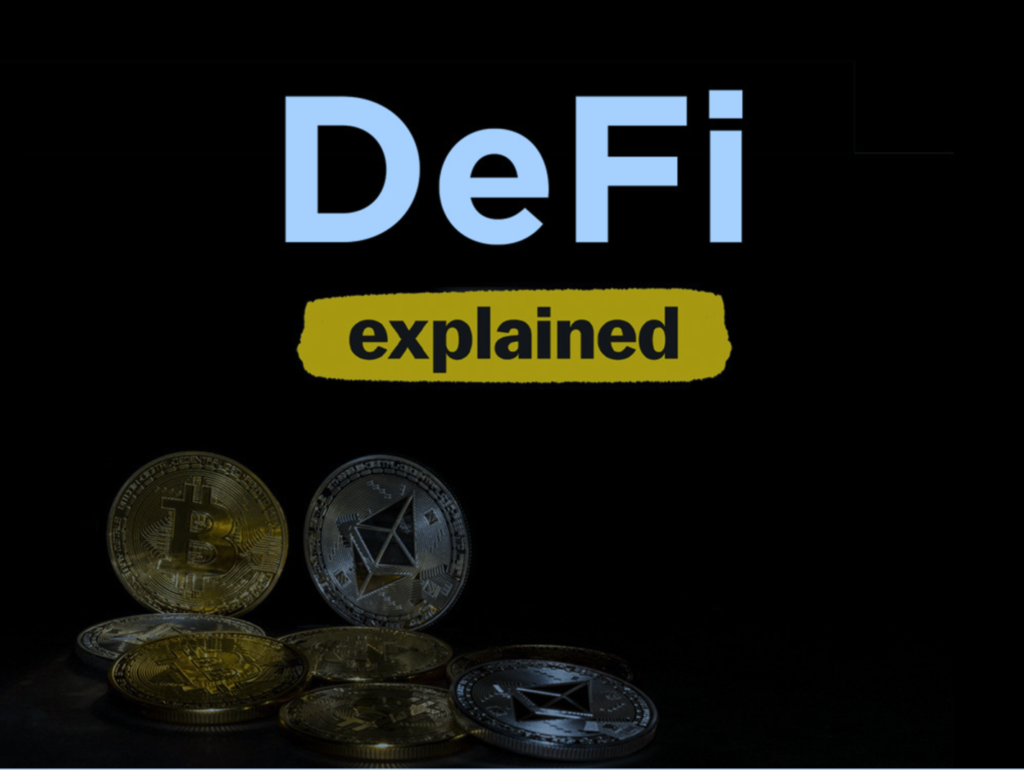One of the financial industry’s fastest-growing trends is decentralized finance, or DeFi for short. DeFi is a new way of transacting that doesn’t rely on intermediaries such as brokerages, exchanges, or banks for financial products and services.
Take a simple transfer of money. If you want to send $100 to a friend, you first send the instruction to your bank, which then deducts $100 from your account and increases your friend’s
balance by $100. The bank is in total control: only it can maintain and alter the database of everyone’s account balances and historical transactions.
DeFi, by contrast, aims to revolutionize finance by doing away with such central intermediaries. Key to this is the technology known as blockchain: basically a digital database of transactions – or ledger – that’s duplicated and distributed across an entire network of connected computers. That’s why a blockchain is often called a decentralized database – one independently stored on thousands of computers rather than being controlled by a single authority.
One of the largest and most popular blockchain networks is Ethereum. And for good reason: it’s fast, open-source, and offers plenty of functionality. As a result, many of the biggest DeFi platforms out there right now are being built using Ethereum as their underlying blockchain.



